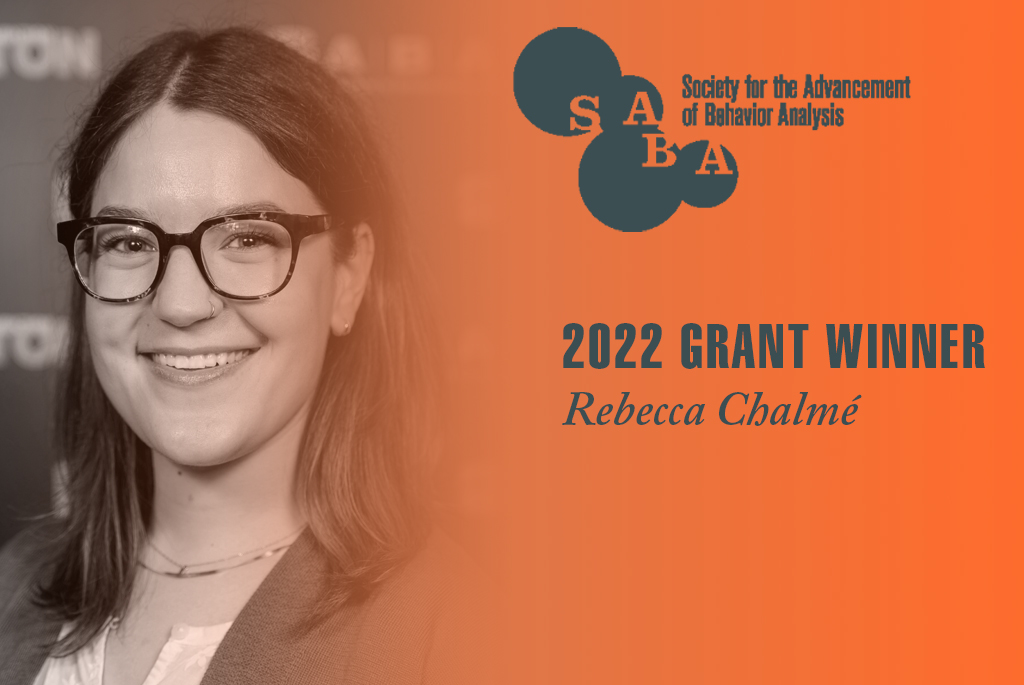Effects of Combined Ethanol and Nicotine on Delay Discounting in Male and Female Sprague-Dawley Rats

By Rebecca Chalmé, 2022 awardee of an Innovative Student Research – Doctoral Dissertation Grant
Rebecca Chalmé first fell into the clutches of behavior analysis in Dr. Margaret Martinetti’s alcohol research lab at The College of New Jersey. As an undergrad, she gained experience in behavioral-economic research, investigating effects of environmental enrichment on demand for ethanol in rats and conducting a cross-cultural analysis of demand for alcoholic beverages in French and American college students.
In 2018, Rebecca began her graduate work in behavior analysis at West Virginia University under Dr. Karen Anderson. Rebecca’s research focuses on behavioral effects of commonly used drugs such as cannabinoids, alcohol, and nicotine. Her master’s thesis, funded by a 2020 SABA grant, evaluated stimulus effects of cannabidiol (CBD) oil in rats trained to discriminate chlordiazepoxide, a benzodiazepine anxiolytic, from saline. Results indicated that CBD partially substitutes for chlordiazepoxide, but at such high CBD doses and to such a low degree that clinical relevance is unlikely.
Rebecca’s 2022 SABA grant supports her dissertation research into effects of combined ethanol and nicotine on delay discounting in male and female Sprague-Dawley rats. Although alcohol and nicotine are commonly used together, relatively little research has been published investigating behavioral outcomes of their combined administration. Additionally, female subjects remain underrepresented in the literature, despite evidence of sex differences in alcohol and nicotine’s effects on neurotransmission and behavior. Rebecca’s dissertation is designed to assess delay discounting at baseline and following acute ethanol, nicotine, and combined administration. Existing literature suggests two potential outcomes: a synergistic effect in which doses that have little or no effect on their own produce a larger behavioral disruption when combined, or a push-and-pull effect in which ethanol disrupts behavior and nicotine recovers it. It is unclear which, if either, outcome will be observed in delay discounting, and whether results will vary by subject sex.
Upon completion of her Ph.D., Rebecca intends to secure a postdoctoral position where she can refine her training in behavioral pharmacology while learning new skills in behavioral neuroscience. She is grateful to SABA for its commitment to supporting graduate students in behavior analysis. Finally, she would like to thank Dr. Anderson, her colleagues in the lab, and her husband Raymond for their never-ending support and encouragement.


